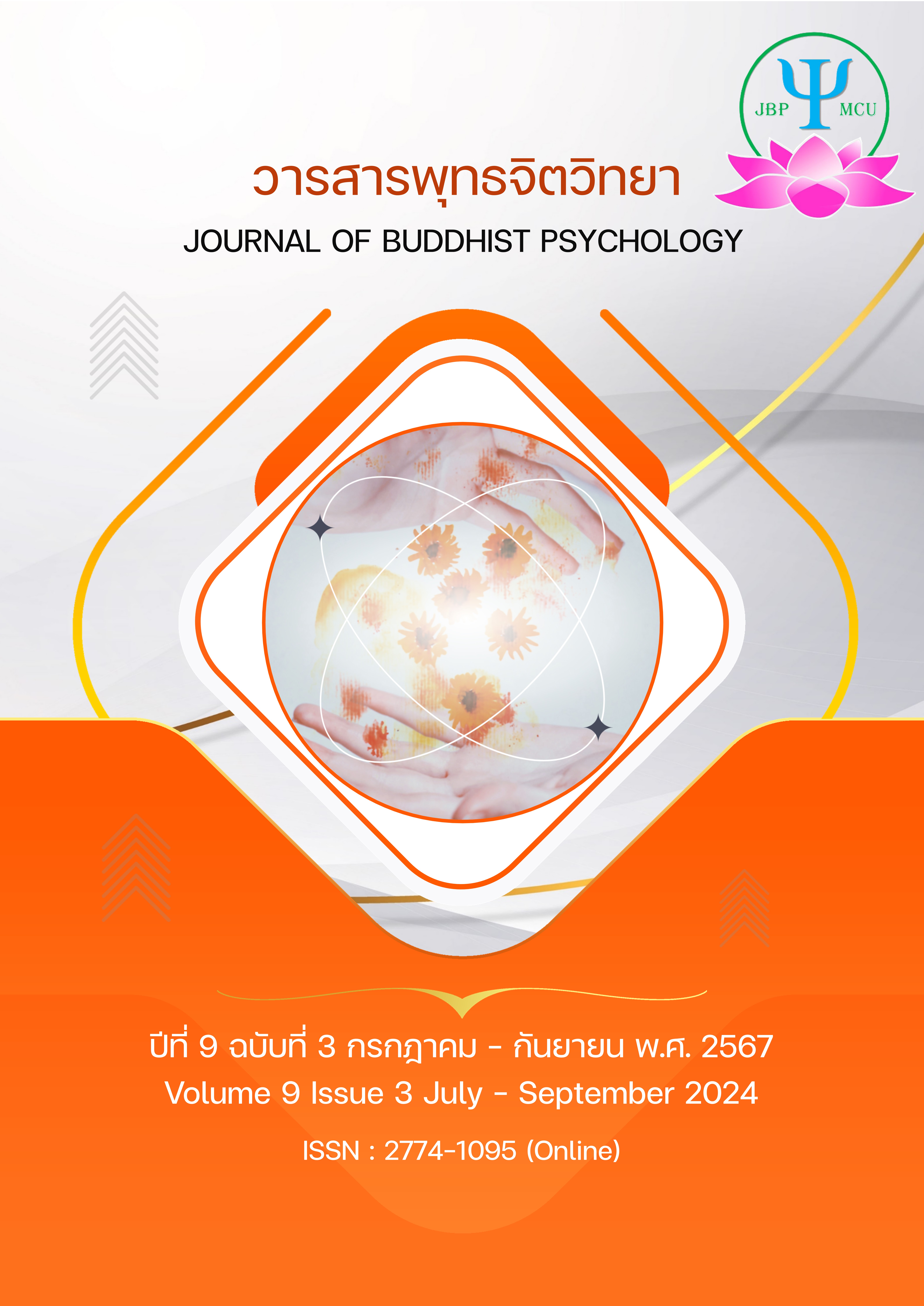An Investigation of Sensory Processing Sensitivity in Thai Undergraduate Students: Exploring Causal Relationships with Positive Psychological Factors
Main Article Content
บทคัดย่อ
The objectives of this research are as follows: (1) to compare the level of Sensory Processing Sensitivity (SPS) between two groups of late adolescents, including a Highly Sensitive Person (HSP) and a non-Highly Sensitive Person (non-HSP); and (2) to explore the causal models of positive psychological factors, and SPS in late adolescence, included 306 undergraduate students from simple random sampling, majoring in the Faculty of Education from three universities in Bangkok, Thailand, who collaborated with members of the Council of University Presidents of Thailand. The research instruments are the general information (six demographic questions) and three psychological scales for undergraduate students (Highly Sensitive Person, Psychological Capital (Psycap), and Self-Compassion, evaluated in five-rating scales). These three scales were determined with Cronbach's alpha coefficient of 0.925, 0.909, and 0.852, respectively. All the data are calculated in descriptive, and causal model analysis. This research found that the SPS in the samples was normalized t-score at a percentile rank of 3.30-100.00. Furthermore, the Lisrel 12.4.3.0 can explore the causal model of samples with about 37.20% of model consistency to represent the samples. Moreover, the model’s Total Effect (TE) of the model was considered as TE = -0.66 between SPS and Self-compassion. In contrast, SPS and Psycap are considered as TE= 0.18. Investigations into the influence of positive psychological factors on Thai undergraduate students are essential to determine how these factors can be leveraged to mitigate potential challenges associated with Sensory Processing Sensitivity (SPS) and ultimately enhance their Psychological Capital (Psycap), thereby promoting academic success.
Article Details

อนุญาตภายใต้เงื่อนไข Creative Commons Attribution-NonCommercial-NoDerivatives 4.0 International License.
เอกสารอ้างอิง
Angsuchoti, S., Wijitwanna, S. & Pinyopanuwat, R. (2011). Analytical statistics for research in social and behavioral sciences: technique for Lisrel program using. (4thed.).Bangkok: CDMK printing.
Bakker, K., & Moulding, R. (2012). Sensory-Processing Sensitivity, dispositional mindfulness and negative psychological symptoms. Personality and Individual Differences, 53(3), 341–346.
Bas, S., et al. (2021). Experiences of Adults High in the Personality Trait Sensory Processing Sensitivity: A Qualitative Study. Journal of clinical medicine, 10(21), 4912.
Boonkerd, P. (2015). The Relationships between Positive Psychological Capital, Perceived Organizational Support and Turnover Intention, With Consideration of Job Satisfaction as a Mediator in Professional Nurses in a Selection Center of Hospital in Eastern Thailand (Master’s thesis). TU Digital Collections.
Chan, K. K. S., et al. (2022). The Impact of Compassion from Others and Self-compassion on Psychological Distress, Flourishing, and Meaning in Life Among University Students. Mindfulness, 13(6), 1490–1498.
Chompookard, P. (2017). Self-Compassion: A Principle of Dharma to a Scale Development. Journal of Educational Measurement, 34(95), 1-14.
Greven, C. U., et al. (2019). Sensory Processing Sensitivity in the context of Environmental Sensitivity: A critical review and development of research agenda. Neuroscience and biobehavioural reviews, 98, 287–305.
Gulla, B., & Golonka, K. (2021). Exploring Protective Factors in Wellbeing: How Sensory Processing Sensitivity and Attention Awareness Interact with Resilience. Frontiers in psychology, 12, 751679.
Ishibashi, S., et al. (2022). Relationship between Sensitivity Tendency and Psychological Stress Reactivity in Healthy Students. Healthcare (Basel, Switzerland), 10(5), 949.
Jagiellowicz, J., Aron, A., & Aron, E. N. (2016). Relationship between the temperament trait of sensory processing sensitivity and emotional reactivity. Social Behaviour and Personality: An International Journal, 44(2), 185–200.
Kantasorn, P., Chulakadabba, S., & Punyapas, S. (2018). Relationship between Parenting Styles and Psychological Capital among Students of a Public University. The Journal of Prapokklao Hospital Clinical Medical Education Center, 35(2), 153-162.
Koolnaphadol, P. (2019). Adolescent Counselling (4th edition). ChonBuri: Get Good Creation Co., Ltd.
Luthans, F., & Youssef-Morgan, C.M. (2017) Psychological Capital: An Evidence-Based Positive Approach. Annual Review of Organizational Psychology and Organizational Behavior, 4, 339-366.
Pluess, M. (2015). Individual differences in environmental sensitivity. Child Development Perspectives, 9(3), 138–143.
Schumacker, R. E. & Lomax, R. G., (2010). A beginner’s guide to structural equation modelling. (3rd ed.). New Jersey: Lawrence Erlbaum Associates.
Srisawat, P. (2015). A Study and Enhancement of Psychological Capital of University Students Through Group Counselling. Journal of Education, Faculty of Education, Srinakharinwirot University, 9(2), 131-146.
Thammarongpreechachai, P. (2022). Applying self-compassion to cultivate a life of wisdom. Silpakorn University Journal, 42(6), 1-13.
Thammarongpreechachai, P., Teerapong, T., & Wongpinpech, V. (2020). Effects of Self-compassion on Compassion for Others and Happiness of Volunteers in Bangkok Metropolitan Regions. Chiang Mai University Journal of Humanities, 21(2), 84–102.
Ussanarassamee, A., (2022). The Development of the Thai Version of Highly Sensitive Person Scale. Bangkok: Psychological Science.


